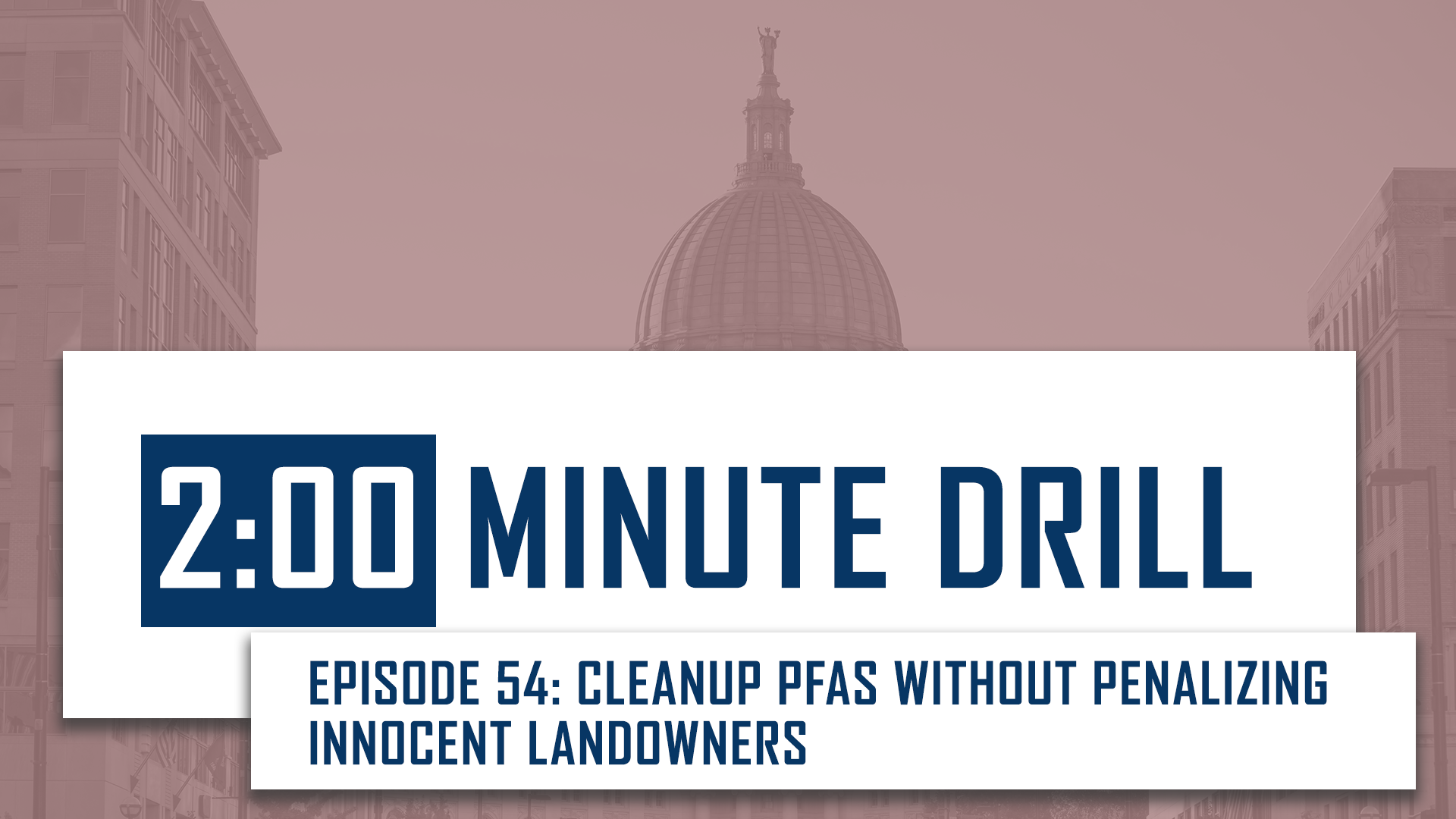 By Jason Culotta, WMC Director of Tax and Transportation Policy
By Jason Culotta, WMC Director of Tax and Transportation Policy
This article originally appeared in the January 2012 edition of Wisconsin Business Voice.
As the result of efforts by WMC and pro-jobs policymakers, a new tax credit will nearly eliminate the state tax burden for many manufacturers.
Wisconsin has long been home to a strong manufacturing sector. In fact, Wisconsin and Indiana consistently top national rankings as the strongest states for manufacturing.
Given that manufacturing is truly the “super-sector” of employment in Wisconsin, strengthening this core pillar of our state economy should top the list of agenda items for policymakers. Thankfully, Governor Scott Walker and legislators made sure improvements in tax policy, tort reform, and reducing the regulatory burden were all adopted this year.
The new manufacturers tax credit was drafted by Senator Glenn Grothman (R-West Bend) and Representative Dale Kooyenga (R-Brookfield) and included as part of the pro-jobs reform agenda. The goal of the credit is to not tax employers for their manufacturing activity in Wisconsin. Using an existing definition in federal law, policymakers were able to tie the tax credit to in-state facilities.
When fully phased in, the credit will equal 7.5% of a company’s “qualified production activities income” derived from manufacturing property located in the state. At full phase-in, this credit will nearly offset the state’s 7.9% corporate income tax rate.
By using the existing definition under the federal tax code for “qualified production activities income,” manufacturers will have greater certainty determining the amount of the credit. There will be less need (and less ability) for state taxing authorities to tinker with the calculation of the credit.
I have already begun to receive calls from businesses interested in who can claim the credit. The credit will be available to corporations, individuals, estates, and trusts, as well as members, partners, and shareholders of pass-thru entities such as limited liability companies, partnerships, and tax option S-corporations.
While we would like to see the credit take immediate effect, budget constraints on the state mean it will be implemented over a four-year period. In 2013, manufacturers will be able to claim a credit equal to 1.875% of their qualified production activities income derived from Wisconsin manufacturing facilities. The amount of the credit increases in 2014 and 2015 to 3.75% and 5.526%, respectively. Finally, in 2016 the credit will be fully phased in at 7.5%.
Any amount of the credit not used to offset state income or franchise taxes can be carried forward and used to offset future tax liabilities for up to fifteen years.
Adopting this tax reform is a big victory for manufacturing and will ultimately lead to more family-supporting Wisconsin jobs. Combined with the exemption for manufacturing and equipment adopted earlier, Wisconsin will be well positioned to be the nation’s leading manufacturing state for years to come.
![]()
The WMC-backed manufacturers tax credit, which will be phased in over a period of four years beginning in 2013, will virtually eliminate the tax on income derived from manufacturing activity in Wisconsin.
The credit will be phased in as follows:
• 1.875 percent for tax years beginning after December 31, 2012, and before January 1, 2014;
• 3.75 percent for tax years beginning after December 31, 2013, and before January 1, 2015;
• 5.526 percent for tax years beginning after December 31, 2014, and before January 1, 2016;
• 7.5 percent for tax years beginning after December 31, 2015, and thereafter.
Unused tax credit amounts could be carried forward up to 15 years to offset future tax liabilities.
The credit will reduce personal and corporate income tax collections by:
• $10,100,000 in fiscal year 2012-13;
• $44,200,000 in 2013-14;
• $72,300,000 in 2014-15;
• $104,400,000 in 2015-16;
• $128,700,000 in fiscal year 2016-17 and thereafter.

Episode 54: Clean Up PFAS Without Penalizing Innocent Landowners
https://youtu.be/cQd0flOJmso WMC is highlighting a proposal from the Wisconsin Legislature to protect innocent landowners from being unfairly penalized as polluters while enabling targeted PFAS cleanup.




